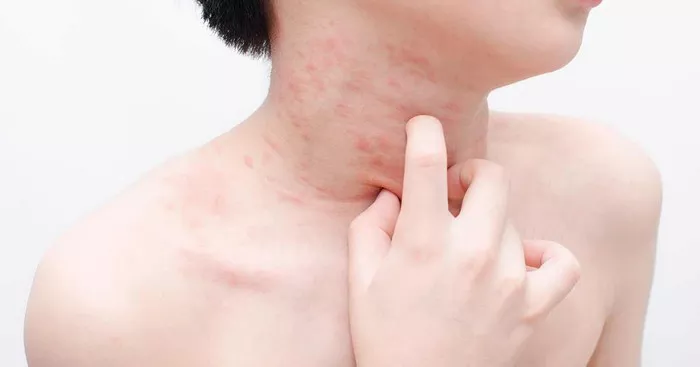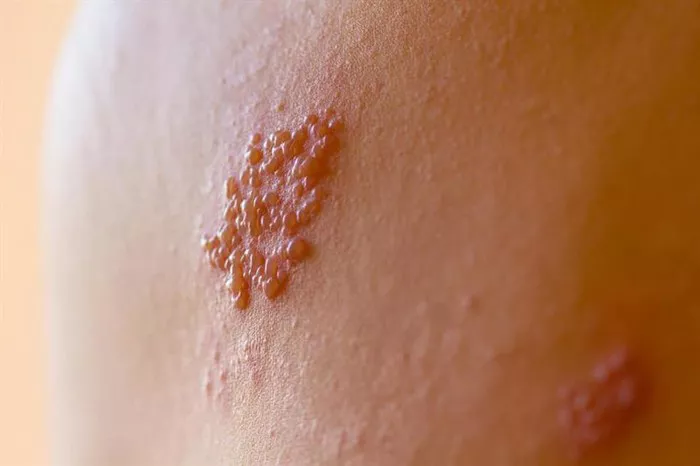Hives, medically known as urticaria, are a common skin condition characterized by itchy welts or raised, red bumps that can appear suddenly and disappear just as quickly. While hives themselves typically resolve within a few hours to a few days, the intense itching they cause can be extremely uncomfortable and disruptive. Fortunately, there are several effective anti-itch medicines available to alleviate the discomfort associated with hives. In this article, we will explore these treatments in detail, discussing their mechanisms of action, effectiveness, potential side effects, and considerations for use.
Understanding Hives and Itching
Before delving into the specifics of anti-itch medicines, it’s essential to understand why hives itch and how this sensation is triggered. Hives develop when certain cells release histamine and other chemicals into the bloodstream, leading to fluid leakage from blood vessels into the skin. This leakage results in the characteristic red, swollen patches of skin that can appear anywhere on the body. The release of histamine also stimulates nerve endings in the skin, causing intense itching.
The itching associated with hives is often more than just a mild annoyance; it can significantly impact a person’s quality of life, leading to sleep disturbances, difficulty concentrating, and psychological distress. Managing this symptom effectively is therefore a crucial aspect of treating hives.
Types of Anti-Itch Medicines
Anti-itch medicines for hives can be broadly categorized into topical treatments, oral medications, and combination therapies. Each type targets the itching sensation through different mechanisms, providing relief that ranges from immediate to sustained.
1. Topical Treatments
Topical anti-itch treatments are applied directly to the affected areas of the skin and provide localized relief. They are often recommended for mild to moderate cases of hives where itching is not widespread.
Calamine Lotion: Calamine lotion contains zinc oxide and calamine, which have a soothing effect on the skin. It helps to relieve itching and can be particularly effective when hives are localized.
Topical Antihistamines: Creams or gels containing antihistamines such as diphenhydramine or doxepin can be applied to the skin to block histamine receptors locally. These products provide quick relief from itching but should be used cautiously to avoid skin irritation or allergic reactions.
Corticosteroid Creams: Topical corticosteroids reduce inflammation and itching by suppressing the immune response in the skin. They are often prescribed for more severe or persistent cases of hives and should be used under medical supervision due to potential side effects with long-term use.
2. Oral Medications
Oral anti-itch medications are systemic treatments that work throughout the body to alleviate itching associated with hives. They are generally used when hives are widespread or when topical treatments alone are insufficient.
Antihistamines: Oral antihistamines are the mainstay of treatment for itching due to hives. They block the effects of histamine, reducing itching and other allergic symptoms. First-generation antihistamines such as diphenhydramine (Benadryl) are effective but can cause drowsiness, while second-generation antihistamines like cetirizine (Zyrtec) and loratadine (Claritin) are preferred for their non-sedating effects.
Corticosteroids: Oral corticosteroids may be prescribed for short-term use in severe cases of hives that do not respond to antihistamines alone. They work by reducing inflammation throughout the body but should be used cautiously due to potential systemic side effects.
Leukotriene Inhibitors: Medications such as montelukast (Singulair) block the action of leukotrienes, which are inflammatory molecules that contribute to allergic reactions. They are sometimes used as adjunctive therapy for chronic hives that are poorly controlled with antihistamines alone.
3. Combination Therapies
In some cases, a combination of different anti-itch medicines may be used to achieve optimal symptom control and relief.
Antihistamines + Corticosteroids: Combining oral antihistamines with short-term oral corticosteroids may provide more effective relief for severe episodes of hives.
Topical Treatments + Oral Medications: Using topical corticosteroids or antihistamines in combination with oral medications can target both localized and systemic symptoms of hives.
SEE ALSO: How Long Do Food Hives Last?
Choosing the Right Treatment
The choice of anti-itch medicine for hives depends on several factors, including the severity of symptoms, the extent of skin involvement, the presence of other medical conditions, and individual preferences.
1. Mild Hives: For mild cases with localized itching, topical treatments such as calamine lotion or topical antihistamines may be sufficient.
2. Moderate to Severe Hives: Oral antihistamines are usually the first-line treatment for moderate to severe itching associated with hives. Second-generation antihistamines are preferred due to their lower risk of sedation.
3. Persistent or Severe Symptoms: In cases where itching is severe or does not respond adequately to antihistamines alone, short-term oral corticosteroids may be necessary. However, these should be used cautiously and under medical supervision.
4. Chronic Hives: For chronic hives that persist for more than six weeks, a combination of therapies may be required, and consultation with a dermatologist or allergist is recommended.
Considerations and Precautions
While anti-itch medicines can provide significant relief from hives, it is important to use them correctly and be aware of potential side effects.
1. Side Effects: Common side effects of antihistamines include drowsiness, dry mouth, and dizziness. Topical corticosteroids can cause skin thinning and irritation with prolonged use. Oral corticosteroids may lead to systemic side effects such as weight gain, mood changes, and increased risk of infections.
2. Pregnancy and Children: Some anti-itch medicines may not be suitable for use during pregnancy or in young children. It is essential to consult with a healthcare provider before starting any treatment in these populations.
3. Underlying Conditions: Individuals with certain medical conditions, such as glaucoma, prostate enlargement, or heart disease, should use antihistamines cautiously and under medical supervision.
Conclusion
In conclusion, managing itching associated with hives requires an individualized approach based on the severity and duration of symptoms. Anti-itch medicines, including topical treatments, oral medications, and combination therapies, offer effective relief by targeting the underlying mechanisms of itch and inflammation. By understanding the options available and considering the specific needs of each patient, healthcare providers can help individuals with hives achieve symptom control and improve their quality of life.
For anyone experiencing persistent or severe itching due to hives, seeking medical advice is recommended to determine the most appropriate treatment plan. Effective management of itching not only alleviates discomfort but also supports overall skin health and well-being.
Related Topics:


























